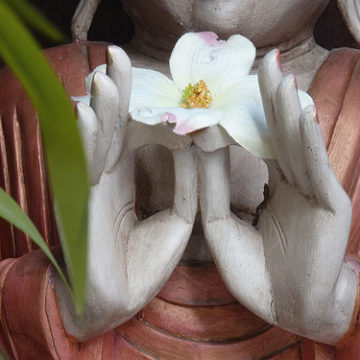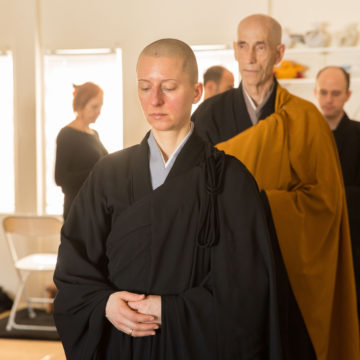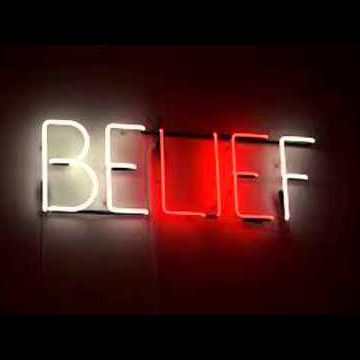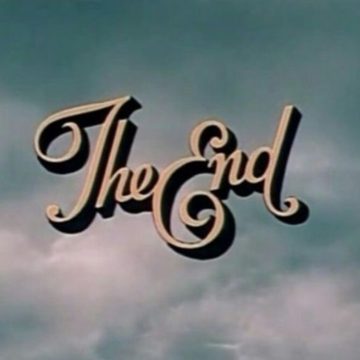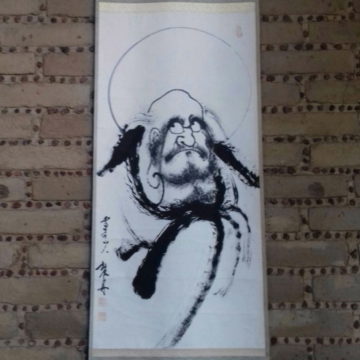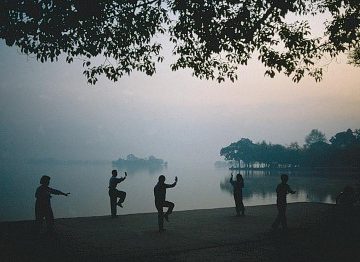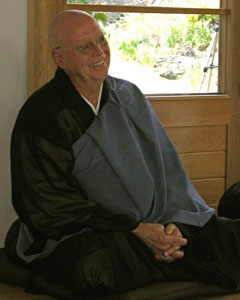Dharma talks that were given by Nyogen Roshi at the Hazy Moon might have been inspired by a koan, a sutra, the writings of our Zen ancestors, modern scientific explorations, a student’s question, or today’s headlines. In every talk, you hear the vitality of the living word, the spontaneous expression of prajna flowing from the awakened mind that cuts through our confusion to encourage and invigorate our practice.
What is Prajna?
“There is much confusion” about the definition of prajna, Nyogen Roshi tells us in this Dharma talk. “And yet it is the simplest, most direct experience of actualized Buddha Dharma.” The reason for the confusion? Prajna simply can’t be understood, because “there is no understanding to the manifestation of great prajna.” Listen as Roshi clarifies […]
The Point to Practice
At the beginning of our sesshin commemorating Shakyamuni Buddha’s enlightenment experience, Nyogen Roshi reminds us of the common thread connecting all the forms of practice in our lineage. “You have to push through the wall of duality–the sense of separation that keeps us trapped in the six senses,” Roshi tells us. “How do I do […]
Belief Systems
“Do you see how your belief system is shaping you?” Nyogen Roshi asks in a Dharma talk inspired by an “old master” who has figured into many of Roshi’s recent talks. “It is a belief system that makes you think this sense of separation is real.”
See Where You Are?
In this Teisho, Nyogen Roshi relates the story of his getting lost in what he calls a “hell realm” and connects his experience with the lessons he is taking from The End of Suffering, a book that he has recommended to the sangha. “It’s your head that you’re constantly looking at,” Roshi says. “So long […]
Miraculous Activity
In a talk weaving insights from the physicist Russell Targ into the teachings of Dogen Zenji and Nagarjuna, Nyogen Roshi demystifies “miraculous activities” like levitation and remote viewing. “The true miracles are the daily activities of Buddhas,” Roshi says.
Lineage is Real
“Lineage isn’t something that you develop, something that you create. It’s something that you receive.” Responding to those who want to establish new Buddhist institutions in the U.S., Nyogen Roshi reminds us how profoundly simple and difficult true Buddhist practice is–and how important it is, for those reasons, to practice with a teacher who has […]
The Oyster Swallows the Moon
Working with “Chimon’s Prajna Wisdom”–a case from the Blue Cliff Record–Nyogen Roshi offers practice instructions that apply not just to working with koans but to any of the practices in the Zen tradition. “You have to take the koan beyond the intellectual mind, the egocentric mind, and that is not easy,” Roshi says. “The difficult […]
Become an Empty Vessel
“You cannot free yourself from the dualistic mind by thinking about it,” Nyogen Roshi reminds us. Instead, using our practice, we have to allow our minds to become still and empty in order to see clearly. “The Miracle is right here!” Roshi says. “This is the miracle!”
The Path to Practice
A guest at a Saturday talk prompts Nyogen Roshi to deliver a tour-de-force round-up of the key themes of his teaching. Connecting the yearning that brings a student to Zen to the cultivation of samadhi through practice, Roshi says, “There is something right here, right now that wants to wake up, or you wouldn’t be […]
Visualization, Koans and Tai Chi
How are Tibetan visualization practices, koans and Tai Chi related? All of these practices help the practitioner let go of the sense of separation that keeps him or her in a state of delusion about the true nature of reality. “Buddha Dharma is about your evolution–the evolution of your consciousness,” Nyogen Roshi says. “There is […]
It’s a Fine Day
Nyogen Roshi talks about cultivating samadhi—the key point of Zen practice.
You Are Everything
In this talk connecting the wisdom of Dogen Zenji with some of the insights of quantum physics, Nyogen Roshi encourages us to realize the teachings of the Buddha right where we sit. “There’s something so amazing here,” he says. His words point us toward the place of liberation–which is always where we find ourselves right […]

